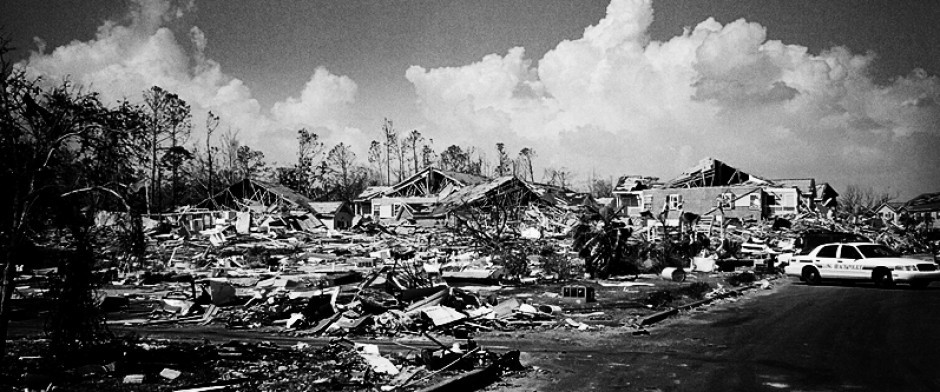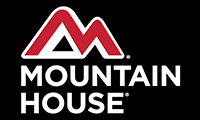I reject the narratives circulating in the media. I reserve the right to think independently and dissent from what the nation is being intimidated into “believing.” This is still a Right of free people. The argument all cops are bad is absurd. The argument that police are systemically racist is patently false…a fact we should all be proud to announce vice succumbing to political intimidation and pandering. On the other side of the narrative, it is false to declare that all cops are good and beyond reproach. Like all institutions, there are always some wrongdoers. However, when we find these miscreants wearing blue, we should all agree to weed them out instead of insulating them from accountability, be it by a union or immunity. Also false are the polarized arguments insisting at one extreme, we abolish the police, or at the other extreme, cops must be protected from all criticism. Neither narrative is beneficial and neither serves to address the real problems underlying the growing animosity and distrust between the public and the police. This is not accidental. This is a classic false choice, a red herring, set up by subversive elites to effectively trick the public into division. To be clear, the police writ large are still the good guys and appreciated by vastly more people than the mainstream media portrays through a campaign of relentless disinformation. So, rather than rehashing ridiculous narratives, I hope I can inject some balance and reason back into this ideological divide, which has been engineered to rip apart the fabric of this great nation. In Part I of my articles on policing in the United States, I address the root causes of conflict between the police and the public, which are by definition systemic, and how to reverse it at a macro level.
To scope the argument, let me ask this question. Is there a difference between law enforcement and the police? I asked many police officers this question and the consensus answer, albeit nuanced, was they were the same. Inherent in this consensus the two terms are synonymous is what I believe to be one of the greatest problems with “law enforcement.” There is a huge difference between protecting citizens as citizens and enforcing any edict an insane bureaucrat may concoct as a paramilitary arm of the regime. This divide can be traced directly back to the differing Franco-Continental and British views of policing pre-dating the 1700s. The British ideas, captured in Sir Robert Peel’s Nine “Peelian Principles,” represent policing by the consent of the people. The Franco-Continental view is one of authoritarian absolutism through law enforcement. One is the champion of the people and respected and the other becomes the enemy of the people and detested. Not surprisingly, governments left unchecked often create a Franco-Continental model of law enforcement instead of the citizen based British model of policing. Being that the law enforcement model has been embraced by big government socialists around the world to force policies without the consent of citizens, I do not find it at all coincidental that this glaring distinction between policing and law enforcement has been eradicated in modern vernacular and discussion. Equally true is that as our nation moves from policing by consent to policing by force, there will be growing resistance. As such, when asked how to “fix” our police departments, my answer is simple. It is not to outright defund the police or get rid of cops. It is to remove law enforcement from the corrupting control of politicians and make the police directly answerable to the public, which they directly serve. With this comes training, re-education, and a heavy scoping of the role police serve in society and how they perform their duties.
In a perfect world, the public would elect competent officials that execute the duties of their office with the utmost integrity and the best interests of the public in mind. The public would be well represented by their officials. The elected official would be directly accountable to the citizens not just in theory, but in practice. They would rigorously adhere to the legal precedents codified in the Constitution and jealously guard the Rights of the people enshrined in the Bill of Rights. These representatives would craft legislation that improves the lives of the citizens and only when necessary, would they use the police to enforce these just laws in the defense of life, liberty, and property with the citizens’ consent.
Then there is the real world where corrupt and utterly incompetent bureaucrats and politicians spend lifetimes enriching themselves and their close friends at the taxpayers’ expense. These career politicians have an insatiable appetite for more power, which means bigger government. How does government get bigger? It creates more government organizations to churn out an endless supply of new laws and regulations that give the politicians more power, wealth, and protection. To fund these all-consuming fiefdoms, the political elite need an ever increasing amount of money to be extorted from the public in a thousand different ways ranging from traffic cameras, highway tolls, and speed traps, to the 78,000 pages of tax codes and counting. The bigger their government fiefdom becomes, the more inefficient it becomes. The more inefficient it becomes the greater need for even more laws to raise even more revenue. This leviathan left unchecked will create so many laws, regulations, codes, taxes, ordnances, and rules, life for the ordinary citizen becomes oppressive and the citizen soon sees the government as the enemy.
This growth of government directly impacts how police are seen by the public they serve. Bigger and bigger government requires the need for more and more enforcement capacity. This is an inherent problem that defines the violence and tyranny of big government, which soon becomes synonymous with Socialism. To sustain the government, police are placed on the front lines of revenue generation, which immediately makes them the object of scorn for the financially extorted public. Yes, it is true that it is the “elected” politicians of the “people” that created these taxes, but the fact is lost on the individual who only sees the officer in blue writing the ticket. Some examples of how law enforcement become the face of revenue collection include enforcing ridiculous taxes on cigarettes, issuing frivolous traffic tickets, and enforcing tolls on highways paid for a thousand times over by taxpayers. We may dress this up better, but a man with a gun enforcing the extraction of a $40 toll on Interstate 66 from the father trying to get to work is little different in practice to the ordinary citizen than the highwayman of old that held up travelers at gun point and robbed them face-to-face. In addition to revenue collection, law enforcement is tasked with all manner of intrusive actions into people’s lives. The list of egregious abuses grows by the day and includes everything from civil asset forfeiture better known as state sponsored theft to raiding homes in the middle of the night killing innocent citizens through gross negligence. Whether arresting a six-year-old for a playground scuffle or unconstitutionally disarming innocent citizens without due process, the root of these outrages grows from too much government. This insatiable growth of government ultimately pits the organs of state sanctioned force against the people it was designed originally to serve. It is at this juncture when our men and women in blue must ask who they serve and whether they are representing law enforcement and the bureaucrats or police and the people.
Our nation is at cross-roads. Do we want police, or do we want law enforcement? My question to our officers in blue is will you force the corrupt politicians with their overzealous rules to capitulate or will you continue to protect and empower them? Will you serve by the consent of the people or the decree of the bureaucrats that despise the police, yet use law enforcement for their benefit? You, the men and women in blue, have the power to be the champions of the people by denying the political elite the ability to force their oppressive ideologies on the public. You are their enforcement capability. Without your consent, their edicts are hollow. Who do you serve? Are you going to stand in formation all night long getting pelted with bricks and bottles of urine as your neighborhoods burn because some corrupt councilman dictated a stand-down order? Are the only arrests you make going to be the father that pulled a gun to protect his family as the mob attacked him, burned his business, and trashed his car? If so, in spite of the disinformation and propaganda in the mainstream media, which does not represent the actual attitudes and values of the majority in the nation that want to support the police, you have not only have lost the people, but have become the willing dupes of an elite that despises you. Instead of selectively enforcing the law based on intimidation and pressure from radical politicians, I challenge all officers across this nation to push back, use discretion, and exercise their right to dissent by not engaging in inequitably practices that alienate the public. Equally important, if communities genuinely want change in our policing practices…and I do, I challenge the citizens to replace career politicians, roll back the insane number of intrusive and unnecessary rules, and remove the control of the police departments from these governing bodies. Our nation desperately needs checks and balances and for all too long, the big city police departments have been hamstrung by corrupt officials unfit to wear a badge. Make the departments and their budgets independent. Make the police chiefs elected officials. Make the governments stop using the police to enforce revenue collection and all other non-criminal matters. As Sir Robert Peel advocated, make the police the citizens and the citizens the police.
By Guiles Hendrik,
July 14, 2020
Sir Robert Peel’s Nine Principles:
- To prevent crime and disorder, as an alternative to their repression by military force and severity of legal punishment.
- To recognise always that the power of the police to fulfill their functions and duties is dependent on public approval of their existence, actions and behaviour, and on their ability to secure and maintain public respect.
- To recognise always that to secure and maintain the respect and approval of the public means also the securing of the willing co-operation of the public in the task of securing observance of laws.
- To recognise always that the extent to which the co-operation of the public can be secured diminishes proportionately the necessity of the use of physical force and compulsion for achieving police objectives.
- To seek and preserve public favour, not by pandering to public opinion, but by constantly demonstrating absolutely impartial service to law, in complete independence of policy, and without regard to the justice or injustice of the substance of individual laws, by ready offering of individual service and friendship to all members of the public without regard to their wealth or social standing, by ready exercise of courtesy and friendly good humour, and by ready offering of individual sacrifice in protecting and preserving life.
- To use physical force only when the exercise of persuasion, advice and warning is found to be insufficient to obtain public co-operation to an extent necessary to secure observance of law or to restore order, and to use only the minimum degree of physical force which is necessary on any particular occasion for achieving a police objective.
- To maintain at all times a relationship with the public that gives reality to the historic tradition that the police are the public and that the public are the police, the police being only members of the public who are paid to give full-time attention to duties which are incumbent on every citizen in the interests of community welfare and existence.
- To recognise always the need for strict adherence to police-executive functions, and to refrain from even seeming to usurp the powers of the judiciary of avenging individuals or the State, and of authoritatively judging guilt and punishing the guilty.
- To recognise always that the test of police efficiency is the absence of crime and disorder, and not the visible evidence of police action in dealing with them.



Good Points and in much of rural America, policing is done by a sheriffs department and the sheriff is elected by the people every four years. In these counties, the sheriff decides the policies of which and how laws are enforced. Lately, more than half the sheriffs in Virginia told the governor and his liberal controlled legislature to pound sand on their new “gun control” regulations. This model works well for the most part and is similar to what you propose. It’s only when a separate, unelected “police department” is established that the abuses begin. This is what you see in the big cities. Yes, even a sheriff can be corrupted and so forth, but this is the best model.